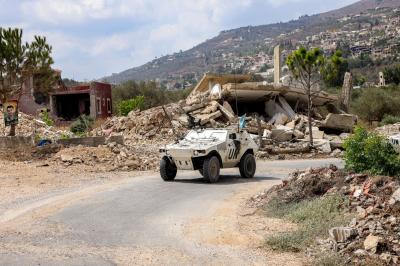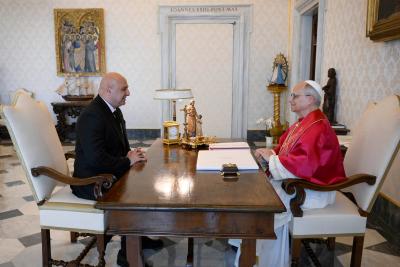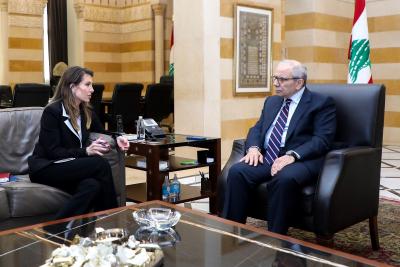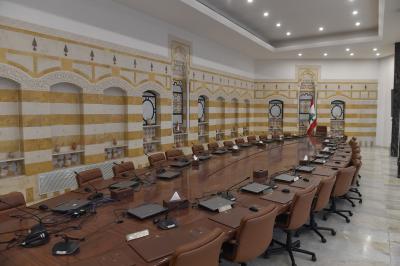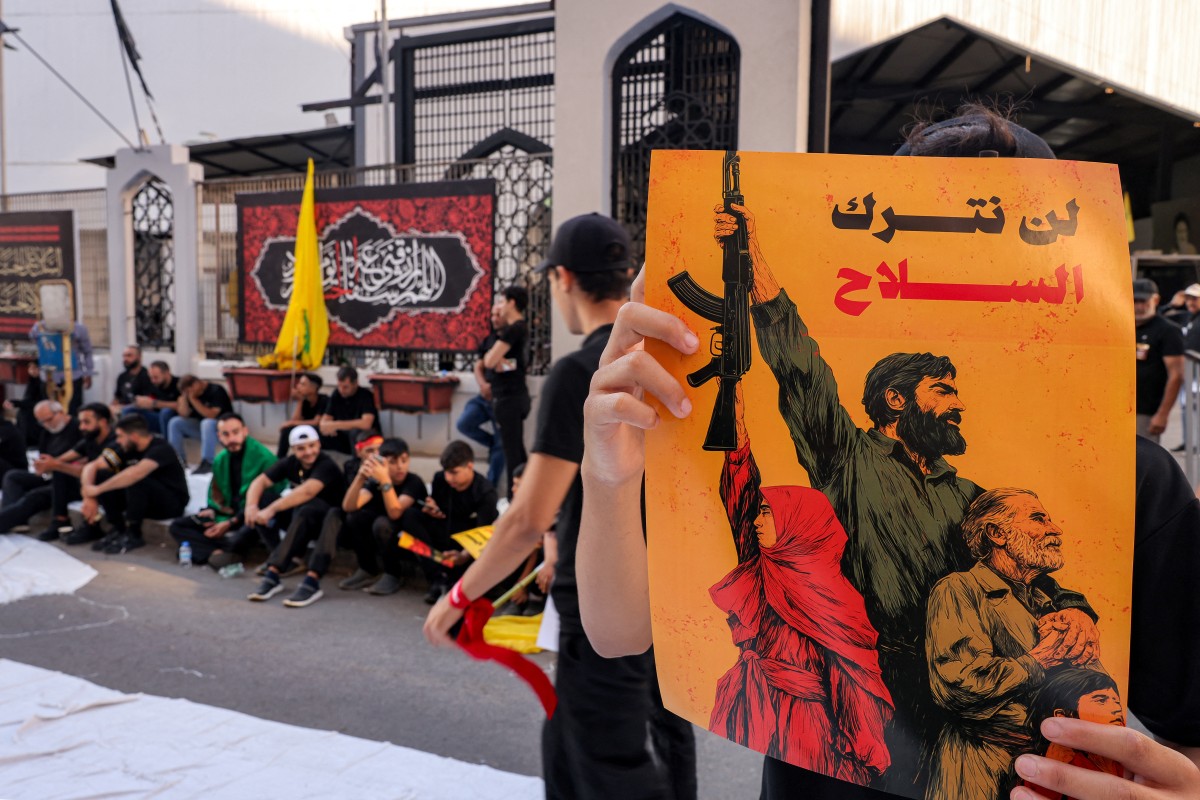Despite the flexibility shown by Lebanon’s President, "Hezbollah" remains unwilling to commit to surrendering its weapons or placing them solely under state control. The group continues to postpone decisions relying on broader regional developments—from Israel’s war with Iran, to the ongoing conflict in Gaza, the Israeli occupation and attacks on Lebanon, and the volatile situation in Syria—
During the discussions surrounding Lebanon’s official response to the U.S. proposal, "Hezbollah" chose to remain in the background. The group is unwilling to sign onto a new agreement or make any pledges that Israel could later exploit. In official negotiations over the clause concerning the exclusivity of arms under state control, "Hezbollah" refused to use the term “disarmament” and instead accepted the softer expression “weapons under the state’s authority.” It also insisted on framing the discussion within the context of a “national defense strategy”—a deliberately ambiguous term that leaves room for maneuver and complicates implementation.
The government and "Hezbollah" approach the weapons issue from fundamentally different perspectives. During the war, "Hezbollah" was pressured into accepting a ceasefire deal, and warned that failure to do so would lead negotiators to walk away and leave Beirut’s southern suburbs to their fate. Speaker Nabih Berri agreed to the deal, banking on U.S. guarantees that Israel would abide by it. Yet Israel never withdrew and continued targeting "Hezbollah" with tacit American support. This bitter experience led the group to inform Lebanese officials that it sees no need for a new agreement unless it is preceded by concrete actions—namely, an Israeli withdrawal and cessation of hostilities.
In its talks, "Hezbollah" demanded guarantees to prevent Israel from repeating its past violations. The group voiced deep skepticism over the proposal brought by U.S. envoy Tom Barrack, which called for gradual disarmament in exchange for phased Israeli withdrawals—a step-by-step plan: surrendering heavy weaponry for an initial concession, then drones for another, and so on. "Hezbollah" downplayed the offer, viewing it as an attempt to give Israel through diplomacy what it failed to achieve through war.
Despite the losses it has suffered in both personnel and civilian support, "Hezbollah" still considers its weapons a red line, not to be crossed until there are tangible regional shifts and trustworthy guarantees.
The weapons issue has now transcended Lebanese borders, becoming a focal point in U.S.-Iranian negotiations and a pressure card in American efforts to ensure Israel’s security. "Hezbollah" categorically rejects any direct talks with the U.S., distrusting its intentions based on past experiences. Even the group’s initial positive impression of Barrack’s tone quickly faded after dissecting his language. Barrack made clear that in Washington’s eyes, "Hezbollah" remains a terrorist group—whether seen by Lebanon as a political party or resistance movement. He also refused to offer any guarantees that Israel would honor a ceasefire. His warning was blunt: if President Donald Trump loses patience, Lebanon will be left to its fate—at the mercy of Israel—and will be expected to normalize relations without preconditions, as Syrian President Ahmed Al-Sharaa has done.
To date, no unified approach exists between the Lebanese state and "Hezbollah" regarding the weapons file. While the state pushes for the handover of heavy arms to bolster its position internationally, "Hezbollah" firmly rejects this and insists that any discussion must occur under the umbrella of the “defense strategy,” even if only in bilateral talks with the presidency.
The presidency, for its part, is treading carefully to avoid confrontation with "Hezbollah", favoring a calm dialogue instead. However, Barrack’s proposal—and Lebanon’s official response to it—could ignite a new internal crisis. Barrack demanded a clear government stance endorsing the proposal's reference to exclusive state control of weapons. Meanwhile, "Hezbollah" argues that the response need not go before Cabinet for a vote, since the issue was already addressed in the government's policy statement. This discrepancy points to growing internal discord.
Rarely has the issue of "Hezbollah"’s weapons been raised with such seriousness and caution. The group recognizes that delay tactics are no longer effective. This realization has prompted the beginning of a dialogue with Speaker Berri. Early signs of this conversation have emerged: Berri’s office prepared a roadmap for withdrawal that "Hezbollah" approved, and it was included in the presidency’s response to Barrack’s proposal.
While the Lebanese state seeks a mutual understanding with "Hezbollah" on internationally sensitive steps, the group ties its stance to regional guarantees. It warns that disarmament might only serve to isolate and weaken it—surrounded by a Syria moving toward normalization and an Israel emboldened by U.S. support in any new conflict with Lebanon.
Though "Hezbollah" asserts its readiness for another war if forced into it, it is not willing to concede on a sensitive matter like its arsenal. At most, it is open to engaging in dialogue over a “defense strategy”—well aware that such language resonates poorly on the international stage.
The situation remains clouded in uncertainty, especially with Barrack’s stark message: if Lebanon does not align with expectations, it will be abandoned to its destiny. As the region undergoes rapid transformations, the question looms: will Lebanon be left to face its fate alone? And will "Hezbollah" pursue another war to reclaim its lost political leverage and reassert its influence at home?
Please post your comments on:
[email protected]
 Politics
Politics
